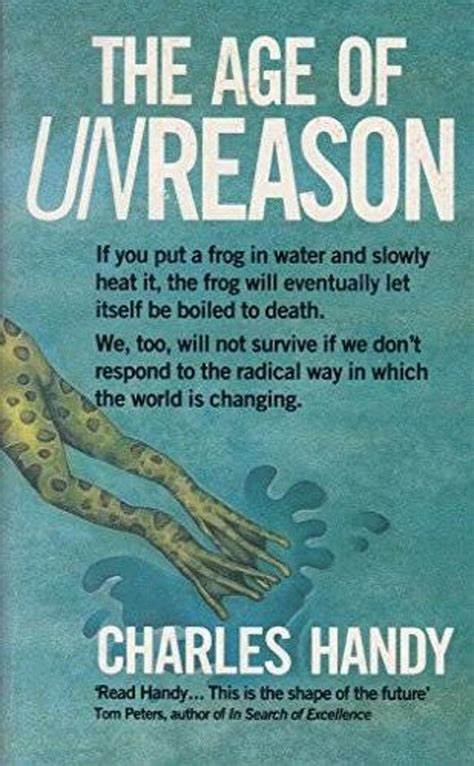
During my studies at Uppsala University, I encountered Charles Handy’s book, ”The Age of Unreason.” His progressive thoughts on work and organizational transformation deeply resonated with me. As I remember Charles Handy used the term ”The Age of Unreason” to describe a new era characterized by rapid change, uncertainty, and the need for flexibility and adaptability in both personal and professional life. He argued that the old rules and structures of work and society were no longer applicable, and that individuals and organizations needed to think creatively and be willing to challenge conventional wisdom in order to thrive.
Handy proposed that rather than clinging to outdated models and expectations, people should embrace change and uncertainty as opportunities for innovation and personal growth. He encouraged a more flexible approach to work, including portfolio careers (a mix of part-time jobs, temporary work, and self-employment), and highlighted the importance of continuous learning and adaptability.
In essence, Handy’s ”Age of Unreason” is a call to action, urging individuals and organizations to let go of old paradigms and embrace new ways of thinking and working that are better suited to the complex, rapidly changing world of the late 20th and 21st centuries.
Reflecting on this 1989 publication, it’s evident that Handy’s insights were incredibly insightful, capturing the essence of today’s work environment. He encouraged us to perceive change as an opportunity for growth and self-improvement.
In the present day, were Handy to revisit and revise his book, he might have chosen the title ””Learning to Leap: Skills for the New Age. The world has undergone substantial changes, highlighting three predominant areas:
- Digital World: Today, technology is a significant part of our work, necessitating its integration into our daily tasks. This is closely tied to the role of AI, challenging departments to continually assess the potential for digital transformation.
- Work Anywhere: The concept of work has transcended the physical boundaries of the office, allowing for flexibility in both location and time.
- Working with AI: Establishing a synergistic relationship with artificial intelligence is vital, as it becomes a pervasive element in our work.
Handy underscored the crucial need for lifelong learning, a notion that holds even greater relevance today. The conventional trial-and-error approach to learning is fading away, replaced by a diverse array of resources such as online tutorials, e-learning platforms, and AI-assisted tools. Learning has transcended formal training sessions, evolving into a continuous process of adaptation and growth.
Recognizing this paradigm shift, it is crucial for companies to prioritize learning at a strategic level, fostering a culture that values and encourages perpetual learning. This commitment to learning and development is essential for both individual progress and the collective success of the organization
Additionally, it’s crucial to address career transition challenges, especially when shifting fields without the conventional qualifications. Despite valuing lifelong learning, societal and professional norms often prioritize formal titles.
Handy’s vision of a flexible work environment requires recognizing diverse learning journeys. It’s essential for employers and institutions to value practical experience and non-traditional education equally, ensuring that career progression isn’t limited by outdated standards. This shift is vital for fostering an adaptable and inclusive workforce, aligning with the rapid changes in our professional landscape.